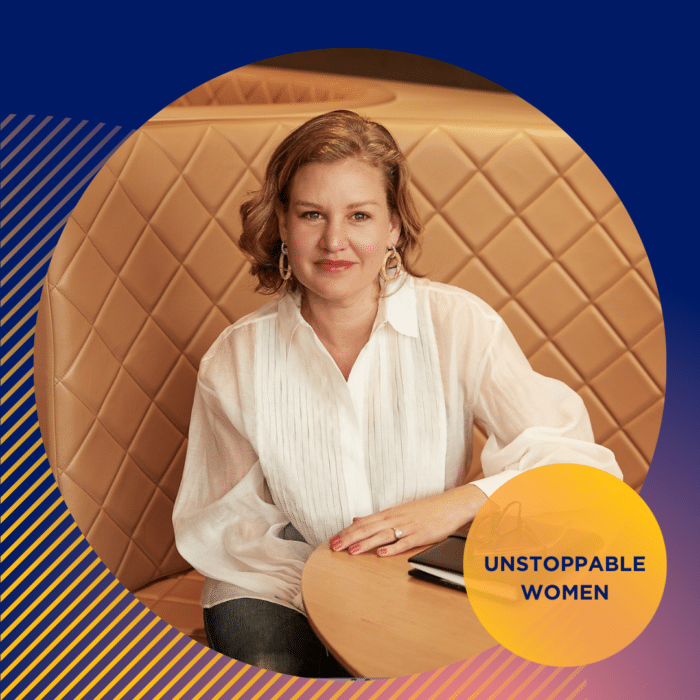Career journey to date
While I didn’t have a specific career plan in mind when I finished school, I knew I wanted to work in areas that were aligned to my values and where I could ideally use my skills in ways that would have positive impacts for people and the world around us.
After graduating with a Bachelor of Arts with a double major in sociology and psychology, I headed off backpacking around Europe and spent time living and working in London, which was a great experience.
Back then, there weren’t really many jobs that focussed on sustainability or ethics in the business world, so I found roles that were aligned to my personal values, such as working in the not for profit sector, and the industry that I work in now evolved as my career progressed. Back then people referred to this area as Corporate Social Responsibility, which often had a philanthropic nature, where-as now many companies have strategic sustainability departments or business units focussed on Environmental, Social and Governance (ESG).
In my current role I lead David Jones and Country Road Group’s sustainability strategy, called the Good Business Journey, with a team of specialists working in areas including; climate, ethical and transparent supply chains, sustainable product, circularity and inclusion. We set ambitious goals for the businesses and help them to achieve them, measuring their progress as they go.
I have specialised in the fashion retail industry for the past decade, but before that I worked in other industries for organisations including the AFL, The Body Shop and The Smith Family. I also sit on several committees focussed on making the fashion industry more sustainable overall.
How did Strathcona prepare you for your chosen career?
Being a small school, I had the opportunity to become involved in several committees and leadership positions, which helped to me to grow in confidence, and learn more about my values and what drives me.
The school also had a strong social conscience and focus on community involvement, and encouraged students get involved in fundraising and outreach programs, which was a good foundation for me to build upon in later years.
What did you study?
Having completed VCE in 1993, I enrolled in a Bachelor of Arts at Monash University, where I took subjects that interested me; anthropology, gender and politics, and Koorie (First Nations) studies, graduating with a double major in sociology and psychology.
Since then, I have undertaken several short courses in public relations, media training and other skills needed for my role at the time. I am also halfway through a deferred Textile Design graduate certificate at RMIT, which I would love to finish eventually.
Who was the major influence on your career path?
My mum was a nurse and my dad worked in the education sector, so I saw their careers as having positive impact on people’s lives. Through them, I was also aware of how privileged I was to be able to access a good education and have so many opportunities that weren’t available to everyone. This gave me the perspective that I wanted to use my skills in a career that could have a positive impact in some way.
I was also very luck to have a geography teacher, Mrs McLeod, who really encouraged my activist streak. Through her, I was involved in supporting human rights campaigns with Amnesty International and even a demonstration opposing the Tiananmen Square massacre. She also helped arrange my work experience in Year 10 with the Wilderness Society, where I was involved in numerous protests and demonstrations to highlight awareness of the pressing environmental issues at the time. Through her I saw how people can use their voice to challenge the status quo and stand up for what they believe in. I like to think of myself today as a more mature and professional version of my 16 year old activist self, working with businesses to support their operations to become more ethical and sustainable.
When did you decide that this is what you wanted to do?
I didn’t ever make any conscious decision to be where I am now, but rather followed my values and interest, and the career path unfolded as the industry did around me.
One conscious decision I did make was to transition into working in the fashion retail sector over 10 years ago. To do this, I took a six-month sabbatical in the UK where the fashion industry there was embracing sustainable design and production, more so than in Australia. Having undertaken some internships and research projects over there, I came back to Australia ready to share what I learned with Australian fashion businesses. From there I took a collection of part time and short-term contract roles, and slowly built up enough work that I created a full-time role for myself. It was certainly a sidestep in my career with a degree of uncertainty, but it ultimately lead me on the career path to where I am now.
What are your career highlights?
I am very lucky to have met and worked with some incredible pioneers my field, including Anita Roddick who founded The Body Shop, and Eva Kruse who is the former chief executive of the Global Fashion Agenda and Copenhagen Fashion Summit, arguably the world’s most important forum on sustainable fashion. The passion and resilience is something I reflect on often, and helps keep me motivated during challenging times.
At the moment I am quite involved with our businesses’ journeys towards reconciliation with our First Nations people. I am learning so much about their rich culture, heritage and connection to country, and also about the reality of our country’s colonial history and the lasting impact it continues to have today. The more I learn, the more I realise how much more there is to learn and understand.
What day-to-day thing do you enjoy about your job?
I work with a great team of people that I learn from every day, and executive teams that are passionate about keeping our Australian fashion industry innovative and viable into the future.
I’m often working on longer term projects that require a lot of research, consultation and engagement with others. I also manage a team of people and support them where needed, and regularly meet with other stakeholders across the business to keep momentum and progress towards achieving our goals. There will always be new issues or risk that emerge requiring immediate attention, and we work as a team to find resolutions. I am also involved in some broader industry working groups, which seek to make the fashion retail sector more ethical and sustainable overall.
What core attributes do you need for your chosen career?
First and foremost people need to a personal desire and passion for wanting to use their time to increase standards of sustainability and ethics. This self-determination has helped me to build resilience in the face of setbacks and when things do go as well as I had hoped.
Another attribute would be remaining flexible and adaptive. The world is changing very quickly and the issues we were dealing with two years ago are vastly different to those we are working on today. This means we need to spend time understanding new topics fairly quickly, and develop plans to support the businesses respond or adapt.
Being able to build and maintain good relationships, as well as influencing skills, is also fundamental. The approach of dangling a carrot is far more affective in advocating change than wielding a stick.
What advice would you give to someone looking to start in your industry?
The ESG space is increasingly being recognised by industries as being of strategic significance, with organisations often building teams of people with expertise in different areas. But businesses are also looking for people who can bring these values into other roles outside of ESG teams, so higher standards of ethics and sustainability can be integrated across organisations. I would encourage people to bring their values into the workplace regardless of their role, and find ways to make small changes where they can.


